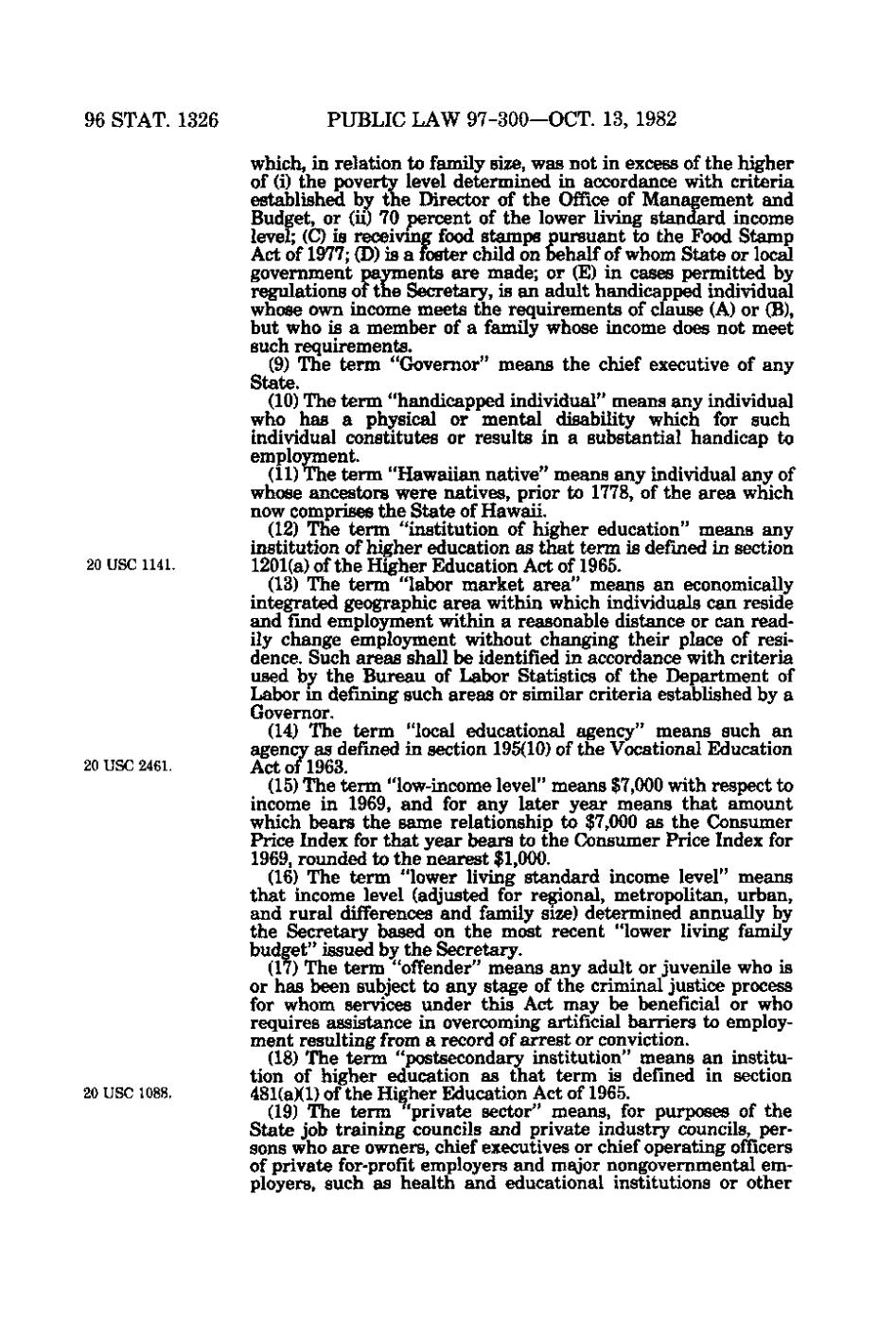96 STAT. 1326
20 USC 1141.
20 USC 2461.
20 USC 1088.
PUBLIC LAW 97-300—OCT. 13, 1982 which, in relation to family size, was not in excess of the higher of (i) the poverty level determined in accordance with criteria established by the Director of the Office of Management and Budget, or (ii) 70 percent of the lower living standard income level; (C) is receiving food stamps pursuant to the Food Stamp Act of 1977; (D) is a foster child on behalf of whom State or local government pasnnents are made; or (E) in cases permitted by regulations of the Secretary, is an adult handicapped individual whose own income meets the requirements of clause (A) or (B), but who is a member of a family whose income does not meet such requirements. (9) The term "Governor" means the chief executive of any State. (10) The term "handicapped individual" means any individual who has a physical or mental disability which for such individual constitutes or results in a substantial handicap to employment. (11) The term "Hawaiian native" means any individual any of whose ancestors were natives, prior to 1778, of the area which now comprises the State of Hawaii. (12) The term "institution of higher education" means any institution of higher education as that term is defined in section 1201(a) of the Higher Education Act of 1965. (13) The term "labor market area" means an economically integrated geographic area within which individuals can reside and find employment within a reasonable distance or can readily change employment without changing their place of residence. Such areas shall be identified in accordance with criteria used by the Bureau of Labor Statistics of the Department of Labor in defining such areas or similar criteria established by a Governor. (14) The term "local educational agency" means such an agency as defined in section 195(10) of the Vocational Education Act of 1963. (15) The term "low-income level" means $7,000 with respect to income in 1969, and for any later year means that amount which bears the same relationship to $7,000 as the Consumer Price Index for that year bears to the Consumer Price Index for 1969, rounded to the nearest $1,000. (16) The term "lower living standard income level" means that income level (adjusted for regional, metropolitan, urban, and rural differences and family size) determined annually by the Secretary based on the most recent "lower living family budget" issued by the Secretary. (17) The term "offender" means any adult or juvenile who is or has been subject to any stage of the criminal justice process for whom services under this Act may be beneficial or who requires assistance in overcoming artificial barriers to employment resulting from a record of arrest or conviction. (18) The term "postsecondary institution" means an institution of higher education as that term is defined in section 481(a)(l) of the Higher Education Act of 1965. (19) The term "private sector" means, for purposes of the State job training councils and private industry councils, persons who are owners, chief executives or chief operating officers of private for-profit employers and major nongovernmental employers, such as health and educational institutions or other
�
